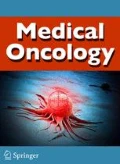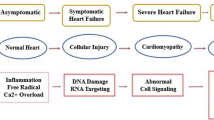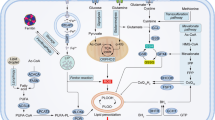Abstract
The development of drug resistance affecting the prognosis of patients with hepatocellular carcinoma (HCC) leads to low survival rate of HCC patients. Caffeine is reported to have a function of protecting the liver and anti-tumor activity. Therefore, caffeine may be an ideal enhancer for HCC chemotherapy regimens. Our study showed that the combination of caffeine and 5-FU significantly inhibited the proliferation of HCC cells in vivo and in vitro comparing with caffeine or 5-FU monotherapy. The CI values of caffeine (0.5 mM) combined with 5-FU (25, 50 μM) were all less than 1, confirming that the utilization of drug combination has a synergistic inhibitory effect on the proliferation of HCC cells. Meanwhile, results of Western blot and TUNEL assays demonstrated that the apoptotic level of HCC cells in the combined group was significantly increased. The protein expression level of cleaved PARP was up-regulated, while the protein level of Bcl-2 and Bcl-xL was down-regulated. In addition, we found that ROS levels were increased in the 1 mM caffeine and 25 μM 5-FU combination group comparing with the control or single drug group. Taken together, this is the first study to demonstrate that the combination of caffeine and 5-FU inhibits HCC cells proliferation and promotes cellular apoptosis by regulating intracellular ROS production. The present data provides a basis for the application of caffeine combined with 5-FU as a novel chemotherapy regimen for HCC.





Similar content being viewed by others
References
Bray F, et al. Global cancer statistics 2018: GLOBOCAN estimates of incidence and mortality worldwide for 36 cancers in 185 countries. CA Cancer J Clin. 2018;68(6):394–424.
Finn RS, et al. Therapies for advanced stage hepatocellular carcinoma with macrovascular invasion or metastatic disease: a systematic review and meta-analysis. Hepatology. 2018;67(1):422–35.
Doherty M, Smith PM. Effects of caffeine ingestion on exercise testing: a meta-analysis. Int J Sport Nutr Exerc Metab. 2004;14(6):626–46.
McLellan TM, Caldwell JA, Lieberman HR. A review of caffeine’s effects on cognitive, physical and occupational performance. Neurosci Biobehav Rev. 2016;71:294–312.
Holick CN, et al. Coffee, tea, caffeine intake, and risk of adult glioma in three prospective cohort studies. Cancer Epidemiol Biomark Prev. 2010;19(1):39–47.
Cheng YC, et al. Caffeine suppresses the progression of human glioblastoma via cathepsin B and MAPK signaling pathway. J Nutr Biochem. 2016;33:63–72.
Sartini M, et al. Coffee consumption and risk of colorectal cancer: a systematic review and meta-analysis of prospective studies. Nutrients. 2019;11(3):694.
Oh CC, et al. Coffee, tea, caffeine, and risk of non-melanoma skin cancer in a Chinese population: the Singapore Chinese Health Study. J Am Acad Dermatol. 2019;81:395–402.
Wiltberger G, et al. Protective effects of coffee consumption following liver transplantation for hepatocellular carcinoma in cirrhosis. Aliment Pharmacol Ther. 2019;49(6):779–88.
Dong S, et al. Low concentration of caffeine inhibits the progression of the hepatocellular carcinoma via Akt signaling pathway. Anticancer Agents Med Chem. 2015;15(4):484–92.
Edling CE, et al. Caffeine and the analog CGS 15943 inhibit cancer cell growth by targeting the phosphoinositide 3-kinase/Akt pathway. Cancer Biol Ther. 2014;15(5):524–32.
Kawano Y, et al. Caffeine increases the antitumor effect of Cisplatin in human hepatocellular carcinoma cells. Biol Pharm Bull. 2012;35(3):400–7.
Xia Y, et al. A phase II study of concurrent chemoradiotherapy combined with a weekly paclitaxel and 5-fluorouracil regimen to treat patients with advanced oesophageal carcinoma. Radiat Oncol. 2017;12(1):47.
Macaire P, et al. Therapeutic drug monitoring as a tool to optimize 5-FU-based chemotherapy in gastrointestinal cancer patients older than 75 years. Eur J Cancer. 2019;111:116–25.
Abdel-Rahman O. 5-Fluorouracil-related cardiotoxicity; findings from five randomized studies of 5-fluorouracil-based regimens in metastatic colorectal cancer. Clin Colorectal Cancer. 2019;18(1):58–63.
Chen LT, et al. Survival with nal-IRI (liposomal irinotecan) plus 5-fluorouracil and leucovorin versus 5-fluorouracil and leucovorin in per-protocol and non-per-protocol populations of NAPOLI-1: expanded analysis of a global phase 3 trial. Eur J Cancer. 2018;105:71–8.
Wen S, et al. Nucleoside diphosphate kinase 2 confers acquired 5-fluorouracil resistance in colorectal cancer cells. Artif Cells Nanomed Biotechnol. 2018;46(sup1):896–905.
Wang M, et al. Expression of the breast cancer resistance protein and 5-fluorouracil resistance in clinical breast cancer tissue specimens. Mol Clin Oncol. 2013;1(5):853–7.
Jin J, et al. Mechanism of 5-fluorouracil required resistance in human hepatocellular carcinoma cell line Bel(7402). World J Gastroenterol. 2002;8(6):1029–34.
Chou TC. Theoretical basis, experimental design, and computerized simulation of synergism and antagonism in drug combination studies. Pharmacol Rev. 2006;58(3):621–81.
Chen T, et al. LncRNA-uc002mbe.2 interacting with hnRNPA2B1 Mediates AKT deactivation and p21 up-regulation induced by trichostatin in liver cancer cells. Front Pharmacol. 2017;8:669.
Noordhuis P, et al. 5-Fluorouracil incorporation into RNA and DNA in relation to thymidylate synthase inhibition of human colorectal cancers. Ann Oncol. 2004;15(7):1025–32.
Li JH, et al. Oxaliplatin and 5-fluorouracil hepatic infusion with lipiodolized chemoembolization in large hepatocellular carcinoma. World J Gastroenterol. 2015;21(13):3970–7.
Lee SW, et al. Transarterial infusion of epirubicin and cisplatin combined with systemic infusion of 5-fluorouracil versus transarterial chemoembolization using doxorubicin for unresectable hepatocellular carcinoma with portal vein tumor thrombosis: a retrospective analysis. Ther Adv Med Oncol. 2017;9(10):615–26.
Korber MI, et al. NF-kappaB addiction and resistance to 5-fluorouracil in a multi-stage colon carcinoma model. Int J Clin Pharmacol Ther. 2013;51(1):35–7.
Eskandari MR, et al. A comparison of cardiomyocyte cytotoxic mechanisms for 5-fluorouracil and its pro-drug capecitabine. Xenobiotica. 2015;45(1):79–87.
Bamia C, et al. Coffee, tea and decaffeinated coffee in relation to hepatocellular carcinoma in a European population: multicentre, prospective cohort study. Int J Cancer. 2015;136(8):1899–908.
Quan HY, Kim DY, Chung SH. Caffeine attenuates lipid accumulation via activation of AMP-activated protein kinase signaling pathway in HepG2 cells. BMB Rep. 2013;46(4):207–12.
Wang TJ, et al. Caffeine enhances radiosensitization to orthotopic transplant LM3 hepatocellular carcinoma in vivo. Cancer Sci. 2010;101(6):1440–6.
Zou X, et al. Allicin sensitizes hepatocellular cancer cells to anti-tumor activity of 5-fluorouracil through ROS-mediated mitochondrial pathway. J Pharmacol Sci. 2016;131(4):233–40.
Hu Z, et al. Enhancement of anti-tumor effects of 5-fluorouracil on hepatocellular carcinoma by low-intensity ultrasound. J Exp Clin Cancer Res. 2016;35:71.
Goncalves DF, et al. Caffeine and acetaminophen association: effects on mitochondrial bioenergetics. Life Sci. 2018;193:234–41.
Zeidan-Chulia F, et al. Major components of energy drinks (caffeine, taurine, and guarana) exert cytotoxic effects on human neuronal SH-SY5Y cells by decreasing reactive oxygen species production. Oxid Med Cell Longev. 2013;2013:791795.
Funding
This study was supported by Grants from Guangzhou Medical University Student Science and Technology Innovation Project (Grant No. 2017A027), the Science and Technology Program of Guangzhou (Grant No. 201707010470), and the National Natural Science Foundation of China (Grant No. 81372634) and the Guangdong Natural Science Funds for Distinguished Young Scholar (Grant No. S2013050014121).
Author information
Authors and Affiliations
Contributions
ZW generated, analyzed, and interpretated the data and prepared the manuscript. CG, XW, YL, YW, XW, and XZ generated, analyzed, and interpretated the data. KW generated the idea, designed the study, analyzed and interpretated the data, and prepared the manuscript. HY generated the idea, designed the study, analyzed and interpretated the data, and edited the manuscript.
Corresponding authors
Ethics declarations
Conflict of interest
The authors declare that they have no competing interests.
Additional information
Publisher's Note
Springer Nature remains neutral with regard to jurisdictional claims in published maps and institutional affiliations.
Rights and permissions
About this article
Cite this article
Wang, Z., Gu, C., Wang, X. et al. Caffeine enhances the anti-tumor effect of 5-fluorouracil via increasing the production of reactive oxygen species in hepatocellular carcinoma. Med Oncol 36, 97 (2019). https://doi.org/10.1007/s12032-019-1323-8
Received:
Accepted:
Published:
DOI: https://doi.org/10.1007/s12032-019-1323-8




